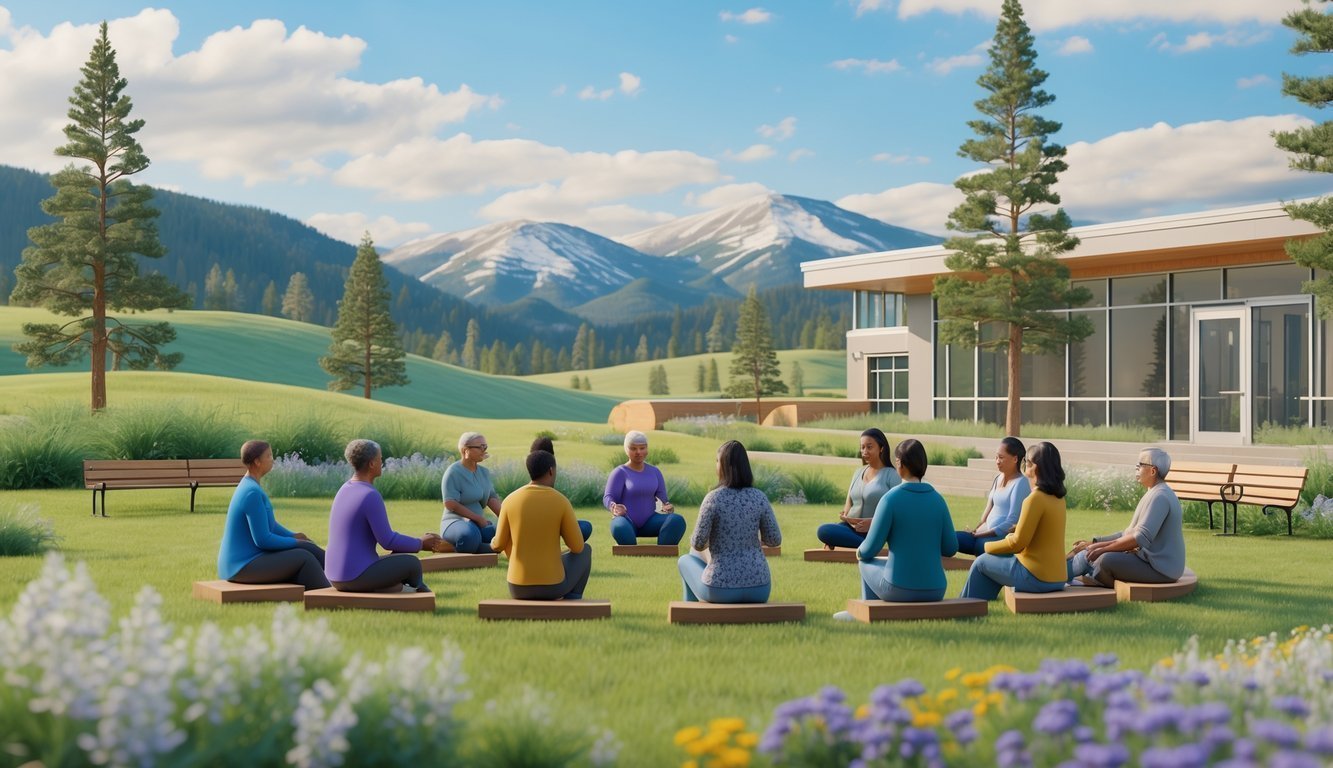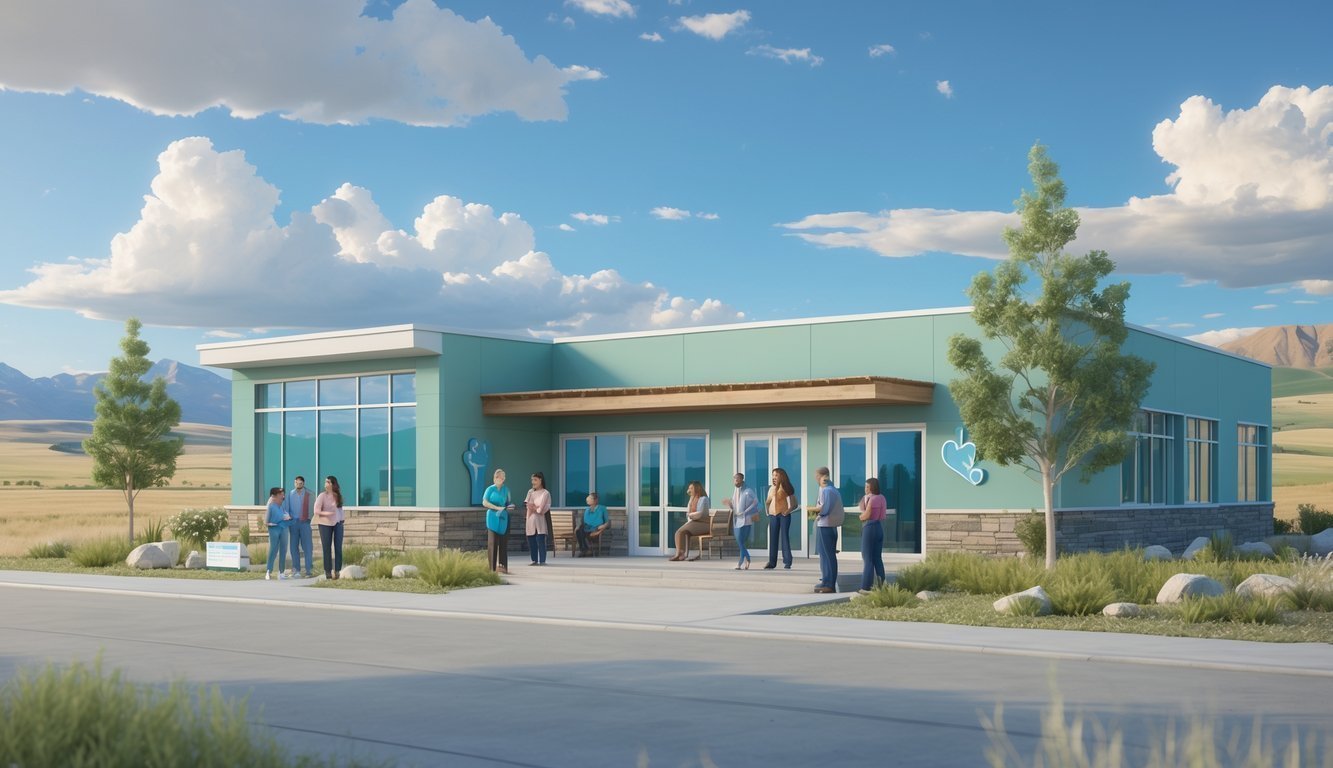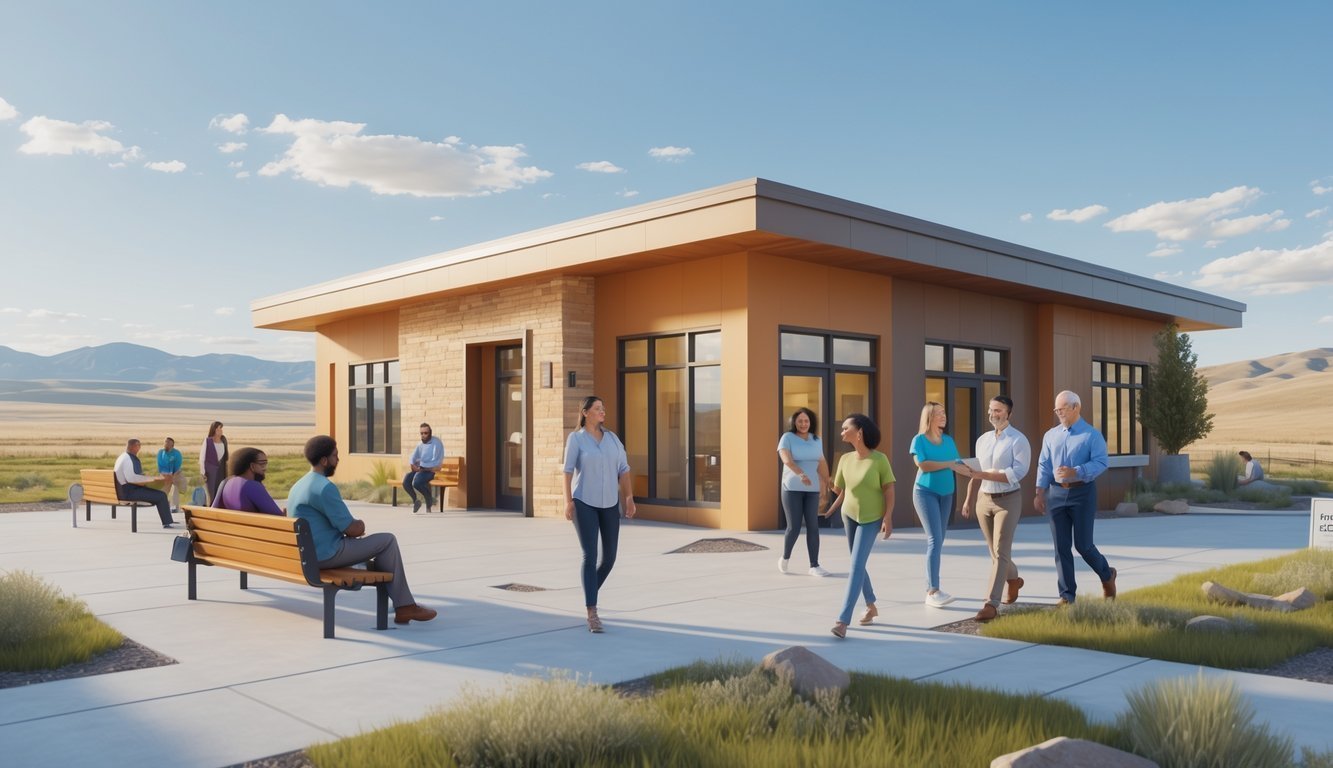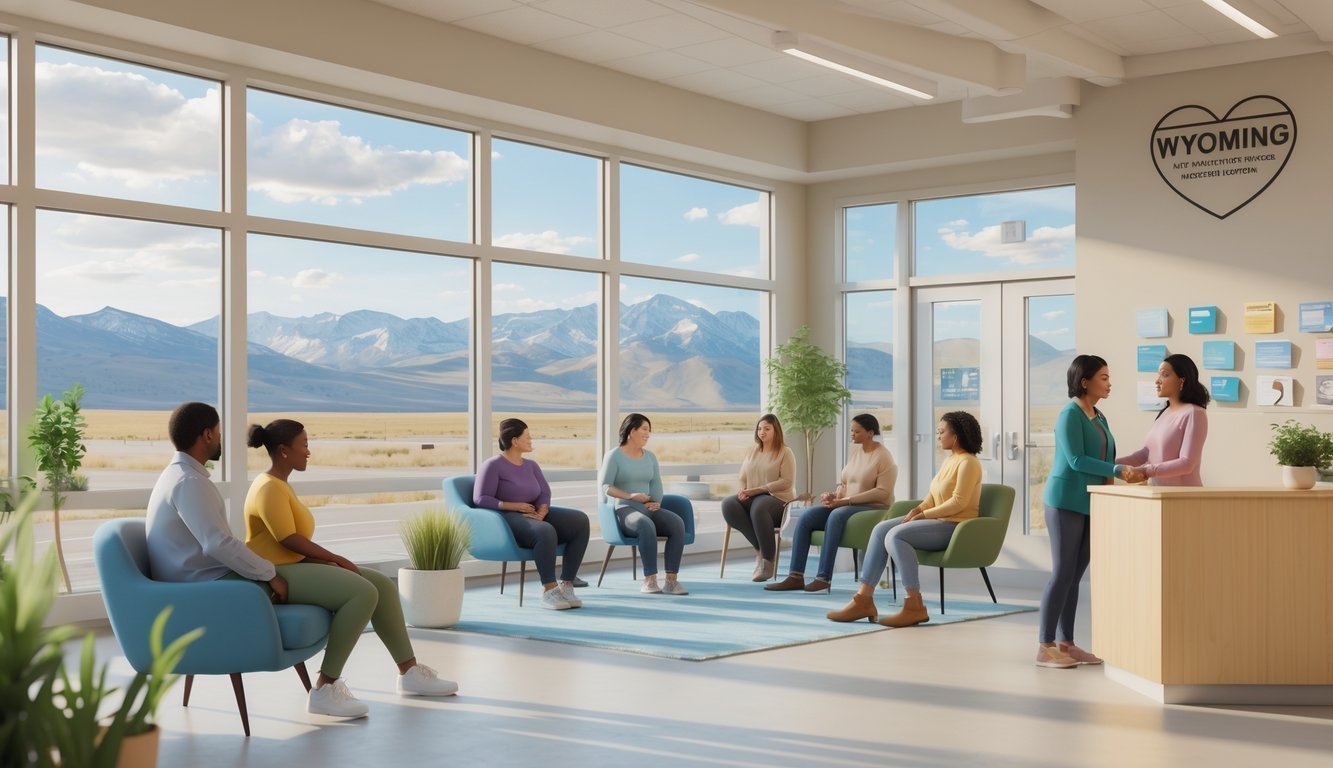PsychNewsDaily Publishers
100 Summit Drive
Burlington, MA, 01803
Telephone: (320) 349-2484
PsychNewsDaily Publishers
100 Summit Drive
Burlington, MA, 01803
Telephone: (320) 349-2484
Affordable mental health care in Wyoming includes various free and low-cost services such as counseling, crisis support, and community programs available to all residents.

Trying to find affordable mental health care in Wyoming can feel like a huge task, especially when stress, anxiety, or depression already weigh you down. A lot of folks in Wyoming don’t realize there are actually plenty of free and low-cost mental health services around, from college campuses to local community centers.

Wyoming has a bunch of free mental health resources, like university counseling, community crisis support, and state programs that help out no matter your ability to pay. Whether you’re a student, working, or don’t have insurance, you can find support.
Knowing where to look for these services and how to get started can make a huge difference. Wyoming’s mental health options cover everything from urgent crisis help to regular therapy, so you can get support wherever you are in your journey.

Wyoming has several free mental health options for people who need support but can’t afford private care. These range from crisis support to community programs and state-funded treatment.
Most people living in Wyoming can get some type of free mental health service, no matter their income. Crisis intervention is open to all students and community members.
Anyone can use emergency mental health support. If you’re in crisis, you can call the 988 Suicide and Crisis Lifeline at any time.
Some programs look at your income. If you’re low-income, you often qualify for extra free services through state or federal programs.
Students at Wyoming colleges and universities get free mental health services through their schools. The University of Wyoming gives free and confidential resources to all enrolled students.
If you don’t have insurance, community mental health centers are available. They use a sliding fee scale, and many offer totally free care if you qualify.
Crisis Intervention Services give immediate help during mental health emergencies. Students can call (307) 766-2187 during the day or (307) 766-8989 after hours for crisis support.
The 988 hotline connects you to trained counselors any time, day or night. You can call, text, or visit 988lifeline.org for immediate help.
Counseling and Therapy Services are available at community mental health centers. You can get sessions with psychologists, psychiatrists, and clinical social workers.
Group therapy usually costs less than one-on-one sessions. Many centers offer support groups for depression, anxiety, addiction, and trauma.
Outpatient Mental Health Programs let you get ongoing treatment without staying in a hospital. These include regular therapy and help with medication if you need it.
Wyoming’s community mental health centers serve every county. The state gives them funding so they can offer free or low-cost mental health care.
The Wyoming Community College system offers mental health support through campus counseling. Students can use these services without paying extra.
Medicaid Coverage pays for mental health services for people who qualify in Wyoming. This covers therapy, psychiatric care, and medications.
Local health departments offer mental health screenings and can refer you to the right resources. They’ll help you find free mental health care near you.
Sliding Fee Scale Programs change the cost based on your income and family size. A lot of people end up paying nothing at all through these programs.
Some religious groups and nonprofits offer free counseling. These often focus on specific communities or groups in Wyoming.

Wyoming has several options for free mental health care, including regional behavioral health centers, local programs, and nonprofits. These providers work together so people can get care, even if they can’t pay.
High Country Behavioral Health stands out as one of Wyoming’s main providers of free mental health care. They run locations all over the state to reach both rural and city areas.
They use sliding-scale fees based on your income. Many people get services for free if they meet the requirements.
They offer:
High Country Behavioral Health welcomes walk-in clients during a crisis. They also have telehealth for people in remote parts of Wyoming.
Each office has counselors who focus on different mental health needs. This includes depression, anxiety, trauma, and substance use.
Community mental health centers across Wyoming provide free services to people who need them. These centers make care accessible to those who can’t pay for private treatment.
Most use a community-based model. They understand the needs and culture of their local areas.
Services usually include:
Many centers team up with local hospitals and health systems. This helps connect mental health care with other medical needs.
Some centers offer transportation help. Others provide services in different languages to reach all Wyoming communities.
Nonprofits fill important gaps in Wyoming’s mental health care. Many focus on specific groups or issues.
Support groups meet in towns all over the state. Trained volunteers or people with personal experience often lead them.
Common support groups include:
Religious groups often sponsor free counseling. They welcome people from all backgrounds.
Online support groups have become more common in rural Wyoming. They help people who can’t travel due to distance or weather.
A lot of nonprofits also run free workshops. These teach coping skills and mental health basics to anyone who wants to learn.

Wyoming residents dealing with a mental health emergency can get help 24/7 through the national 988 Crisis Lifeline or local emergency services. Telehealth also offers quick virtual counseling if you can’t see someone in person.
The 988 Crisis Lifeline gives you free mental health support any time of day. You can call or text 988 from anywhere in Wyoming to reach a trained counselor.
This number replaced the old 10-digit suicide prevention hotline, making it easier to remember when things get tough.
When you call 988, you might speak with someone in your area. The counselor will listen and help you figure out what to do next.
When you call 988, you get:
You can call if you’re having thoughts of suicide, feel overwhelmed, or struggle with substance use. Family and friends can also call for advice.
Call 911 if you or someone else faces immediate danger. Hospital emergency rooms in Wyoming can do crisis mental health evaluations.
Hospitals have staff trained for mental health emergencies. They check your safety and help you get ongoing care.
Main emergency options:
The University of Wyoming offers crisis services for students. These services are free and private.
Some Wyoming counties have mobile crisis teams that come to you, so you don’t have to go to the hospital.
Telehealth lets you get mental health support over video or phone. This is super helpful for people in rural Wyoming.
The University of Wyoming offers telehealth counseling for students all year through their counseling center.
Why people like virtual care:
Many private therapists in Wyoming now offer telehealth. Check with your insurance to see what’s covered.
988 crisis counselors can also help you find telehealth providers nearby. They keep lists of mental health professionals offering remote care.
Finding free mental health services means knowing where to look and how to get started. It helps to find local providers, understand sign-up steps, and know about special programs for different groups.
Start by calling your county health department. They keep lists of providers who offer sliding scale or free care.
Call 211 for quick help. This free line connects you to mental health resources 24/7.
Online directories can help too:
Many hospitals have behavioral health crisis centers with walk-in services. You don’t need an appointment and they can connect you to more care.
Community health centers often use a sliding fee scale for mental health care. Search for “Federally Qualified Health Centers” in your area.
Reach out to local universities with psychology programs. Many offer low-cost therapy through training clinics run by licensed professionals.
Most free mental health programs have a simple sign-up process. You’ll usually need to show income info and proof you live in Wyoming.
You might need:
Community mental health centers are for people who can’t get traditional services. They usually keep enrollment easy.
Call ahead to ask about wait times. Some programs have waiting lists, so try to apply early.
A few programs offer same-day sign-up if you’re in crisis. Ask about emergency intake when you call.
Medicaid enrollment can get you mental health coverage. You can apply through your state’s Medicaid office or Healthcare.gov.
You’ll usually find youth services running through schools or local community centers. If you’re looking for help, your child’s school counselor can point you toward programs in your area.
Crisis centers for children and adolescents give urgent mental health care to kids and teens ages 5 to 17. These walk-in clinics don’t make you book ahead.
Family programs often include:
The 988 Suicide and Crisis Lifeline stays open all day, every day, for anyone who needs support. Counselors there aim to provide care that fits different backgrounds.
Some groups get extra help. Veterans, for example, can get free mental health care at VA medical centers.
Protected groups get more support, thanks to housing and healthcare laws. The Fair Housing Act protects people with mental health conditions from housing discrimination.
If you live in a rural area, you might notice fewer options nearby. Telehealth can help fill those gaps, since many providers now offer video counseling.